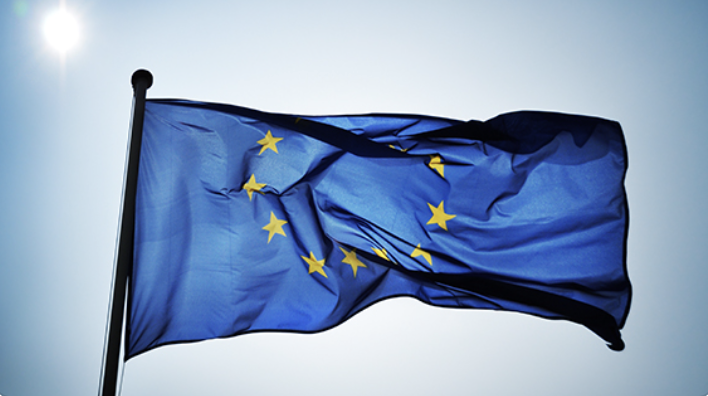Qatar has repeatedly denied any wrongdoing in the simmering scandal.
The European Parliament is taking action to make it more difficult for Qatar and Morocco officials to sway MEPs, as the EU corruption scandal continues to unravel.
The scandal, which has since rocked the European Union, emerged when Belgian authorities raided the houses of several MEP’s and confiscated what reports said was millions of euros in cash from their residences.
Prosecutors allege the money was being used to help influence the European Parliament’s decisions over Qatar and Morocco. However, the Gulf state has dismissed those claims, maintaining that it refuses to have its name dragged into the scandal.
MEPs and staff members are now urged to ask the parliament’s permission before inviting the nations’ diplomats onto the property. The lawmakers must also notify Parliament President Roberta Metsola whenever they meet with the diplomats. This is in accordance with a new set of rules adopted by top MEPs in a closed-door meeting on Thursday and seen by Politico.
The guidelines, however, are not mandatory, and breaking them will not result in punishment for MEPs.
In light of an ongoing criminal investigation in Belgium into whether MEPs accepted payments from Qatar and Morocco, the guidelines are primarily intended to clarify the situation for MEPs and provide Metsola and top civil workers with better control about who is meeting whom.
The action is independent of the current transparency and ethics reform brought on by the scandal, which the parliament is seeking to complete by the end of the summer.
“Most likely this will lead to a situation where these rules are formalised in the future,” said a parliament official. “We need to know who they’re meeting, why they’re meeting. I think everybody understands that it cannot just be business as usual.”
In the four-page document, labelled “for internal use only,” it is also stated that while the criminal investigation is ongoing, MEPs will not be permitted to go on business to either Morocco or Qatar.
It does, however, provide room for MEPs to participate in international gatherings hosted by Qatar and Morocco, such as the Union of the Mediterranean parliamentary assembly, a format that brings together 44 parliaments, including the EU’s, and is now presided over by the Moroccan parliament.
Lobbyists from Qatar and Morocco who have registered themselves in the transparency register are prohibited from entering the parliament’s grounds “as a precautionary measure in light of ongoing proceedings,” the report added.
The requirements only apply to lobbyists who voluntarily state in the register that their clients are from Qatar or Morocco, which is almost definitely not all, thus their impact is minimal, the report added.
Some of the names that have surfaced as part of the probe include former Italian member of European Parliament Pier Antonio Panzeri and former Greek MEP Eva Kaili.
Kaili is the last detained suspect still being held after all the others were eventually freed while still having an electronic monitoring tag. Her Italian partner Francesco Giorgi was also accused of being involved in the scandal.
Kaili will soon seek to have her home confinement lifted, according to her lawyer, just a day after the lawmaker was freed from jail and sent to house arrest pending trial, reports said on Saturday.
“We will soon seek for house arrest to be lifted and the [electronic monitoring tag] removed as she is not suspected of running away or other offenses,” her Greek lawyer Michalis Dimitrakopoulos told local Skai TV on Saturday.
He continued to say that his client will also seek to “exercise her political duties and rights at the European Parliament.”
‘Qatar did not actively pursue’
Earlier this month, the lawyer representing Panzeri confirmed Qatar did not actively seek out connections with members of the EU.
In an interview with RTBF, lawyer Laurent Kennes said MEPs, including his client Pier-Antonio Panzeri pursued Qatar themselves to offer proposals of lobbying for the Gulf state in Europe.
Asked whether Qatar had taken “advantage of Morocco’s corruption networks” to get in touch with Panzeri, Kennes provided a definitive response.
“No. Qatar has not made any proposals to MEPs. They made themselves approachable but they did not make an offer,” he said.
Instead, “the proposal came from members of the European Parliament. And so, it was MEPs, including Mr. Panzeri, who pursued Qatar, not the other way around,” he added.
In January, Qatar’s foreign minister said Doha is “100%” sure that allegations of paying off European officials are baseless and called on Europe to avoid dragging Qatar’s name into the ongoing corruption scandal.
The top official, Sheikh Mohammed bin Abdulrahman Al Thani, told CNBC that the ongoing investigation must be respected before such claims are made.
“As a State of Qatar, we are 100% sure that this premise has no basis. We didn’t see anything. There’s an ongoing investigation. We have to see; we have to wait until the investigation is over,” the official told the news organisation during a sit-in interview.
Sheikh Mohammed highlighted that such Qatar-targeted allegations have only been from the media, and noted the country itself has not yet received any such complaints from Belgium authorities.
“What we are reading and what we are hearing is that there’s an ongoing investigation that everybody should respect and we should look at those outcomes of this investigation.
“This problem is a problem that is happening in Europe for a European institution. It is better for them to look at their own institution and do all the steps required for them and not to drag our country’s name in such a situation,” he stressed.







